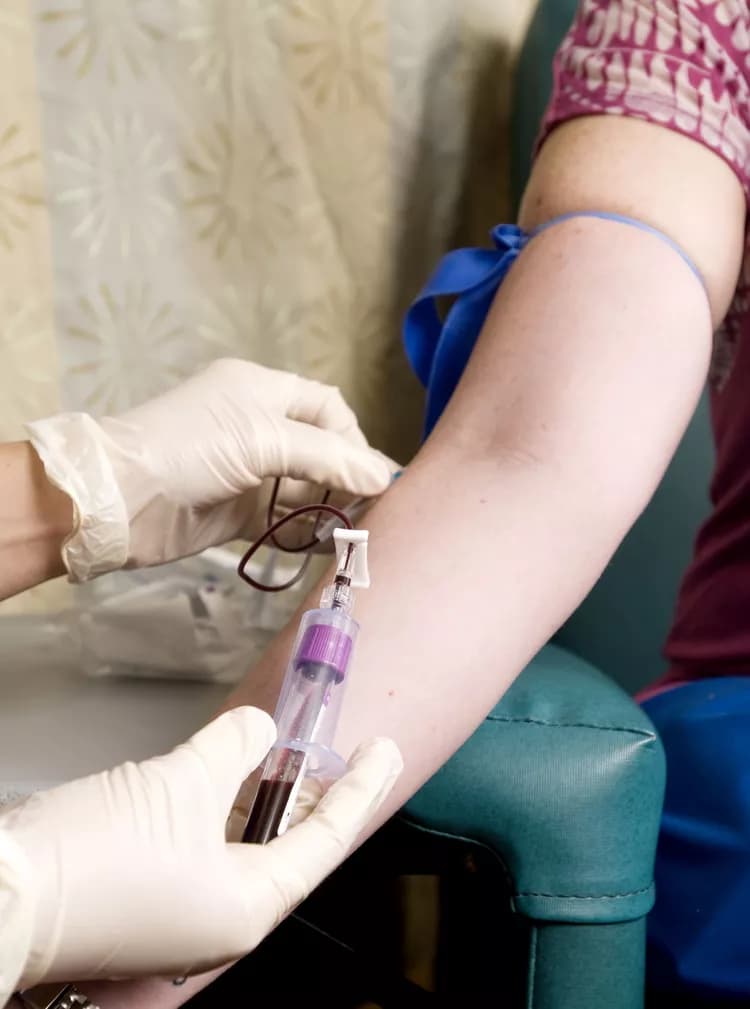What are the other Names for this Test? (Equivalent Terms)
- Prealbumin Test
- Transthyretin Blood Test
- Tryptophan-Rich Prealbumin Blood Test
What is Prealbumin Blood Test? (Background Information)
- Prealbumin is a protein made in the liver and is found abundantly in blood. It is a necessary protein for maintaining proper osmotic pressure
- The name prealbumin is misleading though. Prealbumin is completely different from albumin; much less is it a precursor to albumin, as the name indicates
- Transthyretin (for prealbumin) is the preferred term. Transthyretin is named for its function - transporting thyroxine, triiodothyronine, and retinol. These substances are important to proper metabolism and eye function
- The lifespan of prealbumin is only 4 days. Since, it constantly requires replacement; there must be adequate starting material, obtained through the diet. This makes prealbumin a good indicator for nutritional status
- However, other factors such as injury, infection, and liver disease, influence prealbumin production. Thus, its utility as a nutritional indicator is under deliberation
- The Prealbumin Blood Test measures levels of prealbumin, circulating in blood. Abnormal levels are associated with abnormalities, with respect to blood pressure, nutrition, and internal organs
What are the Clinical Indications for performing the Prealbumin Blood Test?
The following are clinical indicators for performing the Prealbumin Blood Test:
- Routine screening
- In order to monitor dialysis
- Abnormal blood pressure
- Possible malnutrition
- Serious infection
- Decreased metabolism
How is the Specimen Collected for Prealbumin Blood Test?
Sample required: Blood
Process: Insertion of a needle into an arm vein.
Preparation required: Overnight fasting, prior to testing.
What is the Significance of the Prealbumin Blood Test Result?
Low prealbumin levels may indicate:
- Malnourishment
- Metabolic stress
- Hypothyroidism
- Low blood pressure (hypotension)
High prealbumin levels are not used for an accurate diagnosis. Nevertheless, high prealbumin levels may indicate:
- Kidney disorder or kidney failure
- Liver disorder or liver failure
- Hodgkin disease
- High blood pressure (hypertension)
The laboratory test results are NOT to be interpreted as results of a "stand-alone" test. The test results have to be interpreted after correlating with suitable clinical findings and additional supplemental tests/information. Your healthcare providers will explain the meaning of your tests results, based on the overall clinical scenario.
Additional and Relevant Useful Information:
- Genetic defects in prealbumin can make it susceptible to aggregating. These aggregates deposit as amyloid. Diseases caused by amyloid deposition (amyloidoses) include familial amyloid polyneuropathies, such as Alzheimer’s disease
- Certain factors may interfere with the test and these include: NSAID medications, oral contraceptives, and estrogens
Certain medications that you may be currently taking may influence the outcome of the test. Hence, it is important to inform your healthcare provider, the complete list of medications (including any herbal supplements) you are currently taking. This will help the healthcare provider interpret your test results more accurately and avoid unnecessary chances of a misdiagnosis.
Related Articles
Test Your Knowledge
Asked by users
Related Centers
Related Specialties
Related Physicians
Related Procedures
Related Resources
Join DoveHubs
and connect with fellow professionals


0 Comments
Please log in to post a comment.